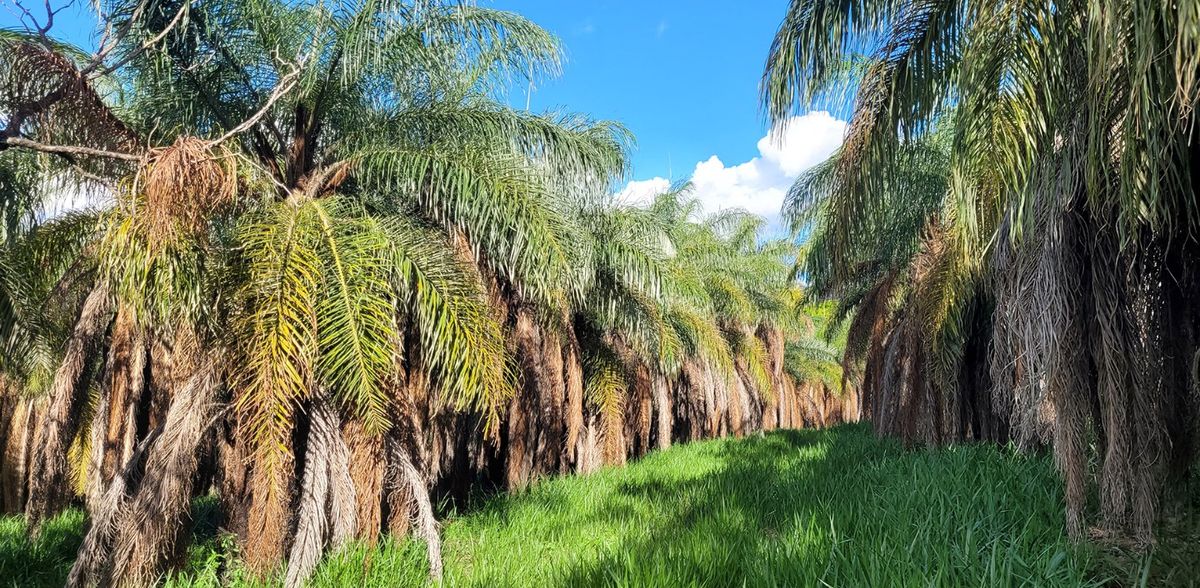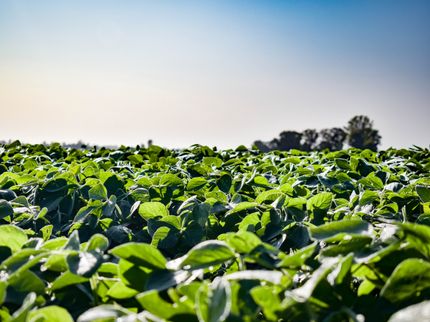Food ingredients from Macauba
Fraunhofer IVV spin-off aims to protect the rainforest
Advertisement
In order to promote the sustainable extraction of vegetable oil, proteins and fiber, the Fraunhofer IVV is working on the holistic use of macauba palm fruits at its Brazilian branch in Campinas. With the development of a new extraction process, it is possible to utilize not only the oil from the fruit, but also the by-products produced during processing. The Fraunhofer IVV has developed the process to pilot scale and applied for a patent. The step towards commercial application was completed in summer 2023 with a spin-off from the Fraunhofer IVV.
Macauba Ingredients GmbH, a spin-off from the Fraunhofer IVV, produces tasty oil and high-quality protein and fiber preparations with excellent functional properties from the fruits of the macauba palm.
Macauba Ingredients GmbH, based in Freising, Germany, produces tasty oil and high-quality protein and fiber preparations from Macauba fruits. Due to their excellent functional properties, the ingredients are suitable for applications in food and pet food, and in the future also for packaging, so that very high added value and profitability can be achieved.
The challenge of vegetable oil production
Global vegetable oil production has more than doubled in the last 20 years due to the increasing demand for biofuels. Production is expected to increase by a further 6 million tons per year, reaching over 330 million tons by 2040. Soybean and palm oil are currently the dominant raw materials with a market share of 62%. Around 13 million hectares of rainforest are cleared every year to provide land for their cultivation. If this development is not halted, the expansion of vegetable oil production will result in the widespread destruction of tropical rainforests.
Solution - the integrated use of macauba
The macauba palm could pave the way out of this dilemma. Macauba is a species of oil palm native to Brazil. At around 2.5 tons of vegetable oil per hectare and year, it achieves a comparable yield to traditional oil palms, but has a significantly lower water requirement and increased drought resistance. As a result, the macauba palm can be cultivated for oil production on low-yielding soils and degraded pastureland in arid regions of Brazil, making the clearing of rainforest for vegetable oil production superfluous.
The cultivation also opens up great potential for sustainability and biodiversity. As part of integrated agroforestry systems - comparable to orchards in Europe - macauba makes an important ecological contribution to the soil. The root system loosens degraded soils, prevents erosion, stores water over long periods of time and creates a moist microclimate and a safe habitat for a wide range of living organisms in the soil. Cultivation also helps to store CO2, with the roots and trunk of the palm trees binding around 20 tons of CO2 per hectare every year.
Macauba cultivation and the shade provided by the palms significantly increase the fertility of the soil, so that pasture grass or crops such as soybeans also thrive much better between the palms than in direct sunlight. The higher yield of pasture grass can, for example, more than double the number of cattle between macauba palms and thus improve the economic situation of small farms.
The potential available for this new cultivation concept is enormous. In Brazil alone, more than 150 million hectares of pastureland are available for macauba cultivation. These areas could be sustainably planted with macauba palms without negative consequences for the ecosystems. This could produce enough vegetable oil to convert 100% of global air traffic to bio-kerosene without harming the environment.
Holistic use of oil, protein and fiber increases added value
The Brazilian government has identified the use of macauba as a strategically important issue and has therefore massively promoted its cultivation. In combination with the aforementioned sustainability effects, this will lead to increasing cultivation of the macauba palm in the future.
Macauba oil extraction produces large quantities of pressing and extraction residues due to the low oil content of the fruit. So far, these can only be used as low-quality animal feed, which could jeopardize the economic viability of macauba cultivation.
With the holistic concept of Macauba Ingredients GmbH, it is possible to fully utilize all fractions of the fruit and make the business model for macauba cultivation very profitable. The protein fraction is particularly valuable. A major advantage of the proteins compared to soy or peas is their neutral smell and taste. This is primarily due to the high oxidation resistance of the seed fats, which prevents the formation of bitter, astringent and beany oxidation products. For this reason, the application spectrum of the proteins is very broad.
The dietary fibers, which are obtained from the residues of oil extraction, also exhibit a high-quality property profile comparable to that of locust bean gum. The dietary fibers are therefore just as suitable for demanding food applications as they are for technical applications.
With the business model of Macauba Ingredients GmbH, cost-effective, tasty and highly functional ingredients will be available in the future. The use of all fractions of the fruit makes it possible to increase the annual yields from 3200 euros per hectare for oil and animal feed production to over 6500 euros per hectare by using the proteins and fiber. The cultivation of macauba thus not only creates ecological benefits, but the high added value also opens up long-term, economically sustainable prospects for farmers and their families in Latin America.
Partners wanted for cooperation
Anyone interested in working with the new Fraunhofer IVV spin-off is welcome to contact the institute or the CEO of Macauba Ingredients GmbH, Dr. Peter Eisner, directly.
Note: This article has been translated using a computer system without human intervention. LUMITOS offers these automatic translations to present a wider range of current news. Since this article has been translated with automatic translation, it is possible that it contains errors in vocabulary, syntax or grammar. The original article in German can be found here.
Other news from the department business & finance
Most read news
More news from our other portals
Something is happening in the food & beverage industry ...
This is what true pioneering spirit looks like: Plenty of innovative start-ups are bringing fresh ideas, lifeblood and entrepreneurial spirit to change tomorrow's world for the better. Immerse yourself in the world of these young companies and take the opportunity to get in touch with the founders.

































































